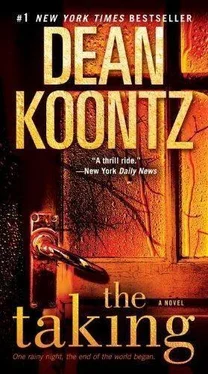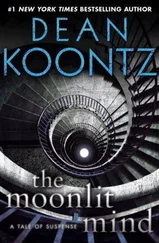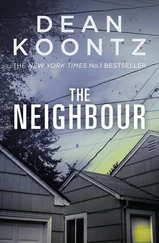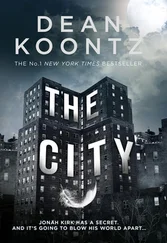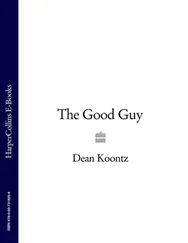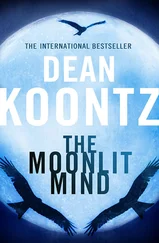"It sure looks that way."
"Yeah. But it's like bad data processing: garbage in, garbage out. Misperceptions in, misconceptions out. There could be factions among them just like there are among human beings. And maybe one of those factions doesn't believe in completely obliterating a species and its civilization."
"If so, they're in the minority, and judging by what's happened so far, they don't have a hell of a lot of clout."
"Except maybe they've won a concession that forbids targeting children."
"But they're still taking our world from us," he said, "and how is anyone, especially a child, supposed to survive in this madhouse ecology?"
She frowned. "They can't. Not with any happiness or hope. But we've got something about this wrong, and I'm trying to straighten it out in my head."
Virgil led them to the bank. During the previous night, in a discussion with the live-free-or-die group at the tavern, Neil had recommended this building as the best place to fortify and defend, assuming there was any hope of meaningful defense or any point in making a last stand.
At first, Molly thought they'd reached the end of their rescue mission. She expected to settle in here with those who chose to fight and to prepare to face the end, if it came, with what dignity and courage they could muster.
Then she realized that no guards were stationed at the front door of the bank. The blinds were drawn at the windows, and as best she could tell, no one watched the street from inside.
"Something's wrong," Neil said. "Something's happened."
"And five kids are in there," she said.
The work was not yet completed.
IF THE CHILDREN WERE IN SOME WAY IMMUNIZED against ultimate violence, for whatever reason, they would be safe in the street, watched over by the dogs. Neil ought to be able to accompany Molly into the bank.
Their exemption from this holocaust, however, was no more than a theory, even though supported by some compelling evidence. With only theory to go by, Molly could not leave them without an adult defender.
If one of them had to go into the bank alone, Neil insisted on being the point man this time, but his intention was not met with enthusiasm by Virgil. The dog refused to accompany him. Indeed, the shepherd sat on the pavement in front of the door, blocking entrance.
Neil reached over the dog to open the door, but he discovered that it was locked.
When Molly approached, Virgil rose to his feet and wagged his tail. She reached for the door, which opened before she touched it.
As previously during this odyssey, this infernal tour, the inanimate seemed to harbor intention.
With an embrace and a kiss, Neil conceded the point position to Molly. He returned to the children and the dogs in the street.
During the walk to the bank, she had ejected the magazine from the 9-mm pistol and had replaced the expended cartridge. Ten rounds were loaded, ready. In the pockets of her jeans, she carried a few spares.
Flashlight in her left hand, pistol in her right, she shouldered open the door and followed Virgil inside.
The only bank in Black Lake and environs-constructed in 1936, when depositors needed to be reassured by a financial institution's grandeur-did not measure up in splendor to larger banks of that period in any major city, but it was impressive in its own modest scale. Marble floors. Six marble columns. Marble wainscoting. The surrounds at the tellers' windows were ornamental dark bronze with polished fluting and nickel inlays.
Throughout the lobby, in the tellers' enclosure, in the open area of service desks behind the marble railing, ample light was provided by Coleman gas lanterns, which hissed softly like dreaming snakes.
Molly switched off her flashlight and tucked it under the waistband of her jeans, in the small of her back, leaving both hands for the gun.
Although more than twenty adults, plus five children, had left the tavern with the intention of stocking and fortifying the bank, only four adults, three men and a woman, were in the lobby. They stood side by side, in a line, facing the row of teller windows, their backs to the door.
They didn't turn when Molly entered, which seemed odd, for the door had made some noise, and the dog's claws ticked on the floor, inspiring a sleet-storm of echoes from every marble surface.
From the back, she recognized only one of the four: Vince Hoyt, the history teacher and football coach.
"Vince?"
He didn't turn.
"Everything okay?" she asked.
None of the four acknowledged her.
Seeking guidance, she looked down at Virgil. He had abdicated leadership and, favoring Molly with a solemn gaze, waited for her to act.
She crossed the lobby to the line of four, noticing that they stood stiff, heads up, shoulders squared, essentially at parade rest, except that their arms hung slackly at their sides.
"What's going on?" she asked, and knew the answer when she came around the end of their formation.
They had no faces.
HERE WAS THE PHENOMENON THAT CASSIE HAD described: people without eyes, noses, mouths, each face smooth from ear to ear and from hairline to the rounded bottom of the chin, the color of pale clay, as glossy and featureless as fired ceramics.
They should have been dead, for they could not breathe.
Although their chests did not rise and fall with exhalation, inhalation, they twitched perceptibly from time to time, and their throats moved as they swallowed. In two of them, a racing pulse throbbed visibly in their temples. And in every case, their hands, slack at their sides, trembled.
They radiated an anxiety that was almost palpable, almost keen enough to smell. They were without faces, but they were still somehow alive-and profoundly afraid.
Somewhere in the bank were five helpless children, and no doubt with them was a thing with faces in its hands. Because its kind seemed to be omniscient, it would know that she had arrived.
Virgil still would not lead, but he stayed bravely at her side, though visible tremors passed through his flanks.
She opened the low bronze gate to the tellers' enclosure, and stepped into the realm of money, realizing that money had no meaning anymore.
At the back of the tellers' enclosure, a low railing separated that space from a hallway. She opened another gate and led Virgil into the corridor.
Three Coleman lanterns were evenly spaced along this passage. Nothing disturbed the silence except the hiss of gas burning in the mantles, behind the clear heat shields.
Here the floor was carpeted. The dog made no sound.
Five doors were set in the east side of the hall, three in the west side, all with frosted-glass panes in the top half. Some bore the names of bank officers. Another was labeled REST ROOMS. Two were not marked.
The entrance to the walk-in vault waited at the end. Set in a steel architrave, a massive round stainless-steel door, ringed with three-inch-diameter locking bolts, stood open.
Behind the doors with frosted glass, the rooms were dark. She considered them for a moment but then trusted intuition and passed them warily.
Cassie's fearful voice played in memory: They can take your face and keep it in their hands, and show it to you, and other faces
In the vault at least one lantern glowed. She could see no one in the vestibule just beyond the deep jamb.
faces in their hands
crush them in their fists, and make them scream
Molly was fifteen feet from the vault door when she felt in mind and marrow, in blood and bone, the return of the airborne leviathan. It was cruising in from the north-northeast, seeming to compress the atmosphere below it, so that she felt like a diver deep in a marine abyss with a great weight of ocean on her shoulders.
Читать дальше
Конец ознакомительного отрывка
Купить книгу
